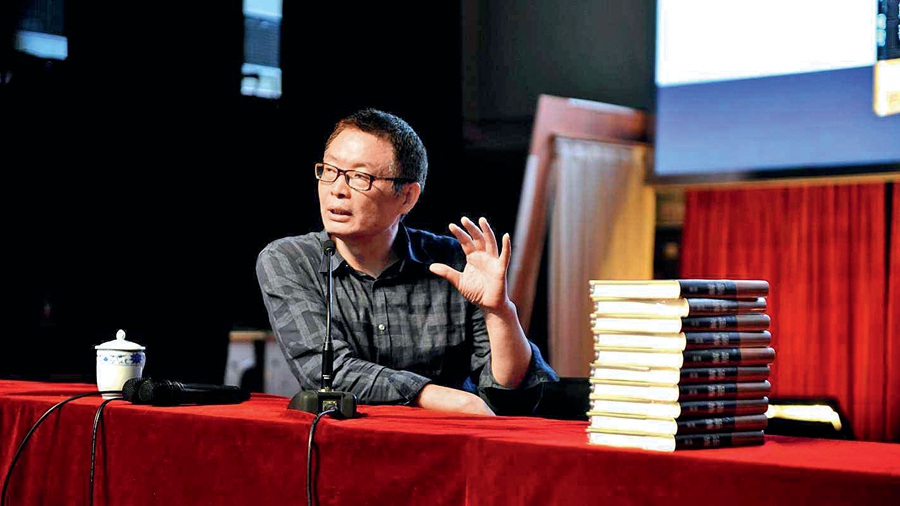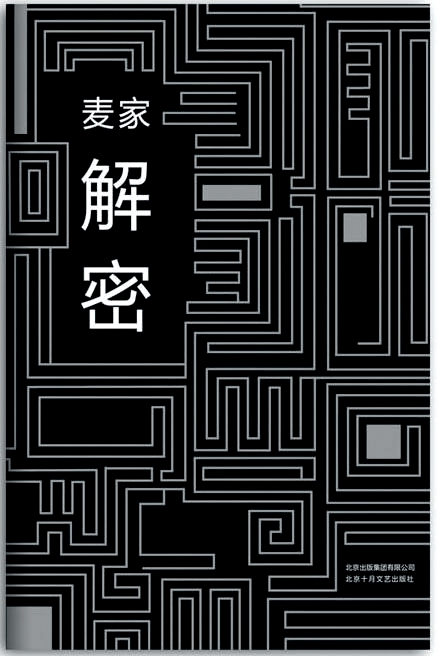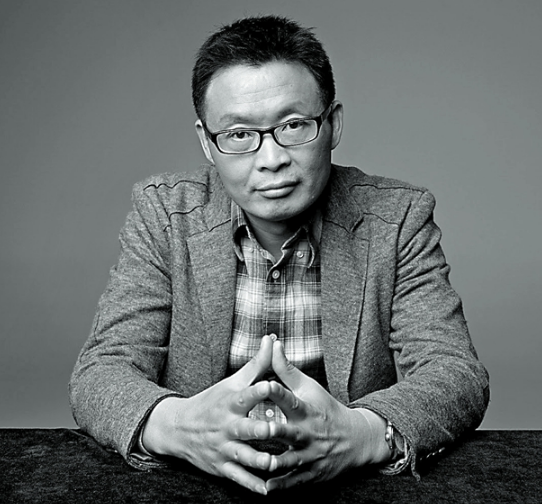Mai Jia: The Dan Brown of China?
China Today,May 28, 2018 Adjust font size:
The Must-Read Chinese Author
On a trip to Paris, Mai visited his favorite bookstore, Shakespeare Books, which was turned into a salon for book lovers by its owner George Whitman. The free and pure ambiance of the bookstore attracted Mai.
Born in the countryside, Mai’s struggle as a writer was not smooth, which is why he truly empathizes with the pangs of today’s literary youth.
“Young people who love literature start in solitary and adversity. As for me, I didn’t know if what I was writing was good or bad, nor did I know where I should send it. I always think literature has given me so much and I should give something back, especially to young writers.”
Penguin Books and FSG Books published Decoded in March 2014 and the English translation of the novel has been sold in over 35 countries, including the U.S. and U.K. Incorporated as “Penguin Classics,” Decoded set the record for a Chinese literary work in foreign markets within 24 hours. Mai said for Chinese literature going global, one must adopt themes more accessible to foreign readers.
Mai is also an active promoter of reading.
After the English version of Decoded, 21 publishers in the U.S., U.K., Spain, France, Russia, Germany, Israel, Turkey, Poland, Hungary, Sweden, and the Czech Republic have started to promote Decoded and In the Dark in their home countries. So far, Decoded has been translated into 33 languages.
“Compared to the popularity of foreign literature in China, the impact of Chinese literature in the world is still limited. Against this background, the degree of overseas attention on Decoded has exceeded my expectations.” Mai admitted that he might have been aided by a stroke of luck.
He said, first and foremost, he would like to pay his gratitude to Olivia Milburn, the English translator of Decoded, as “a translator is the second parent of the original work.”
As a British sinologist working at Seoul National University, Milburn mainly focuses on Chinese pre-Qin period (21st century-221 BC) studies. Due to the flight delay, she picked up Decoded from the airport bookstore of Shanghai and finished it in one go. When she returned home, she translated several chapters as a form of entertainment. Her classmate, sinologist Julia Lovell took the translation to an editor of Penguin Books, who showed great interest in her work.
Decoded.
Mai believes that it is better to translate from the original language. Among all 33 versions of the novel, seven or eight were translated from English, which he believes lost some of the story’s original flavor.
Apart from translation and promotions by major foreign publishers, the theme itself has transcended regionalism, which is quite helpful for those without knowledge of Chinese history.
In recent years, Mo Yan, Cao Wenxuan, Liu Cixin, and other Chinese writers have received many honors and awards for their literature. Mai believes that their success is an ice-breaking journey for Chinese literature. From now on, he hopes Chinese literature will attract more worldwide attention as the international status of China rises.



